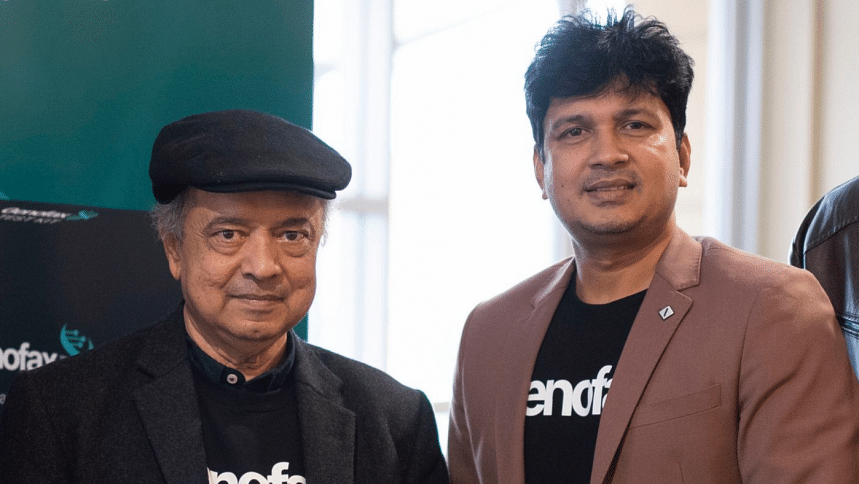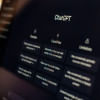Two Bangladeshi scientists' AI tech that can predict diabetes

Genofax, a healthcare tech startup, has introduced a new form of technology called AI-enabled Health-Metric Determination (AIeh-MD) that, by monitoring an individual's gut microbiome, can predict metabolic trends and potentially identify early signs of conditions like obesity, diabetes, inflammatory bowel disease, etc. The company was founded by two Bangladeshi scientists named Zahangir Alam and Dr Abed Chaudhury.
Trillions of microbes reside in our gut, referred to as the gut microbiome. An unbalanced microbiome manifests itself as dysbiosis, which is linked to medical conditions like obesity, diabetes, irritable bowel syndrome (IBS), inflammatory bowel disease (IBD), and more. Genofax uses this concept to predict metabolic trends and provide personalised suggestions by analysing faecal samples with DNA sequencing technology and big data analytics.
Zahangir Alam, a graduate of Computer Science and Engineering from RUET, moved to Australia in 2011. The same year, he founded Teleaus, a global enterprise that creates innovative technology solutions. The other founder of Genofax, renowned geneticist, author and scientist Dr Abed Chaudhury, has over 40 years of expertise in biology and genetics.
Traditional healthcare is often reactive, addressing issues only after they become symptomatic. Genofax seeks to overcome this barrier with its Artificial Intelligence-enabled Health-Metric Determination (AIeH-MD) technology. By monitoring an individual's gut microbiome, Genofax can predict metabolic trends, and identify early signs of conditions like obesity, diabetes, inflammatory bowel disease, etc.
Genofax's technology specifically focuses on the impact of ethnicity and culture on the gut microbiome and metabolism, making it much more predictive and personalised. Using this tech, early research has indicated links between gut microbiome dysbiosis and conditions like prostate and colorectal cancers.
Since its inception in June 2023, the company has been growing fast. On September 21, Genofax launched its first product in Silicon Valley in collaboration with a BtoB partner. The company is also in negotiations with Oxford University, UK and the Netherlands to expand operations there. Genofax envisions to get registered in Nasdaq by 2029. Genofax is also working on developing new products, such as the integration of microbiome data with food to offer lower-cost, high-precision nutrition guidance.
"Traditional treatment can be expensive and in many cases, conditions are irreversible due to delayed diagnosis. But if we can create a product that will offer low-cost, preventive solutions to health problems, healthcare will be more affordable and accessible to the poor", shared Zahangir Alam. He also expressed the possibility of establishing Genofax as a charitable cause for the underserved population of Bangladesh.
Currently, Genofax is actively scouting for partnerships with universities in Bangladesh to conduct research and develop products that cater to the local population. Genofax co-founder Dr Abed believes that to foster a thriving startup ecosystem in Bangladesh, universities need to work alongside the industry and engage the students in the innovation process.
Prior to Genofax, Dr Abed Choudhury contributed in diverse avenues such as crop breeding, climate mitigation, and genetics globally, with notable contributions to the agricultural sector of Bangladesh. He engaged farmers in his birthplace Kanihati in Sylhet to create a rural innovation hub, which recently led to the innovation of 'Panchabrihi', a new type of rice cultivation method by which the same crop can be harvested five times. When asked about the Kanihati project, Dr Abed revealed that he is considering ways to institutionalise his work, possibly through establishing a technical college or extending it to other regions like Rajshahi, where Zahangir hails from.

 For all latest news, follow The Daily Star's Google News channel.
For all latest news, follow The Daily Star's Google News channel. 








Comments